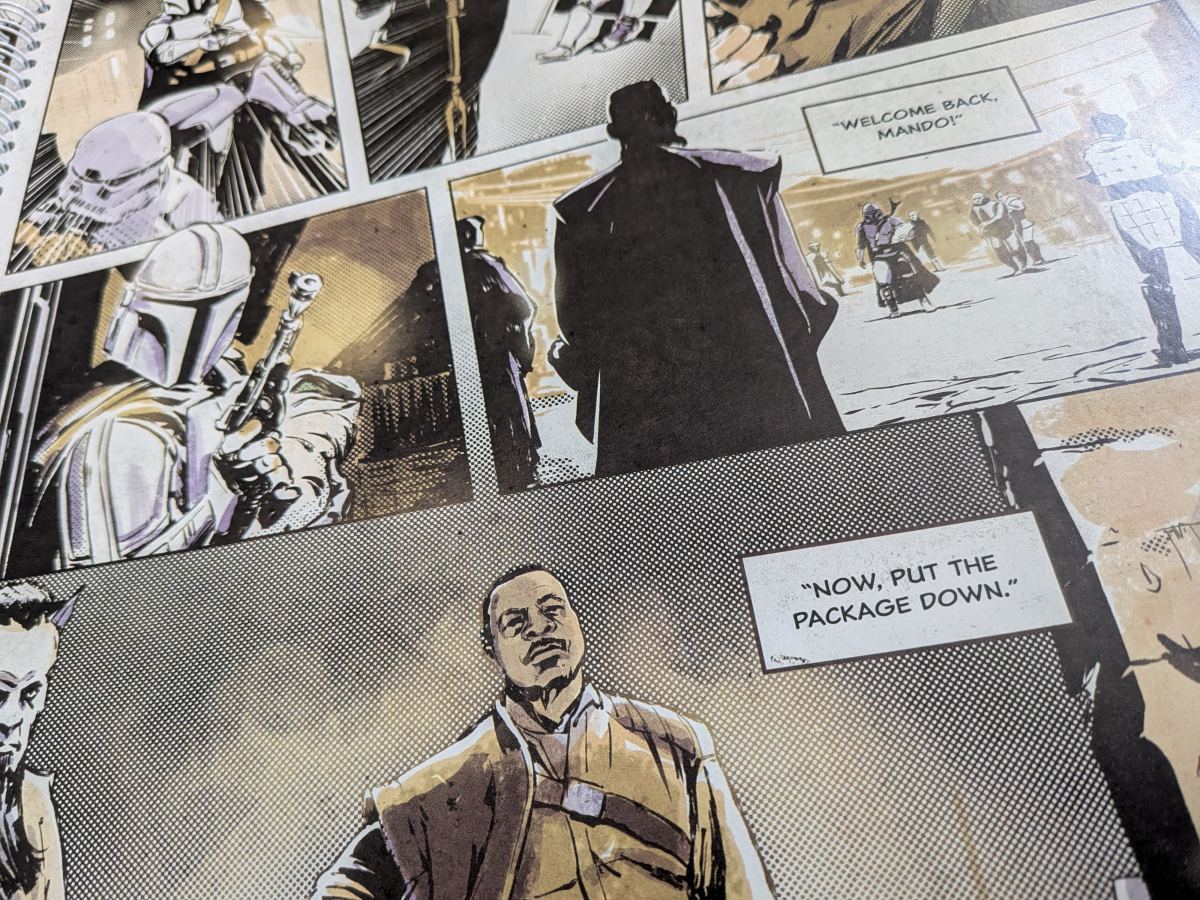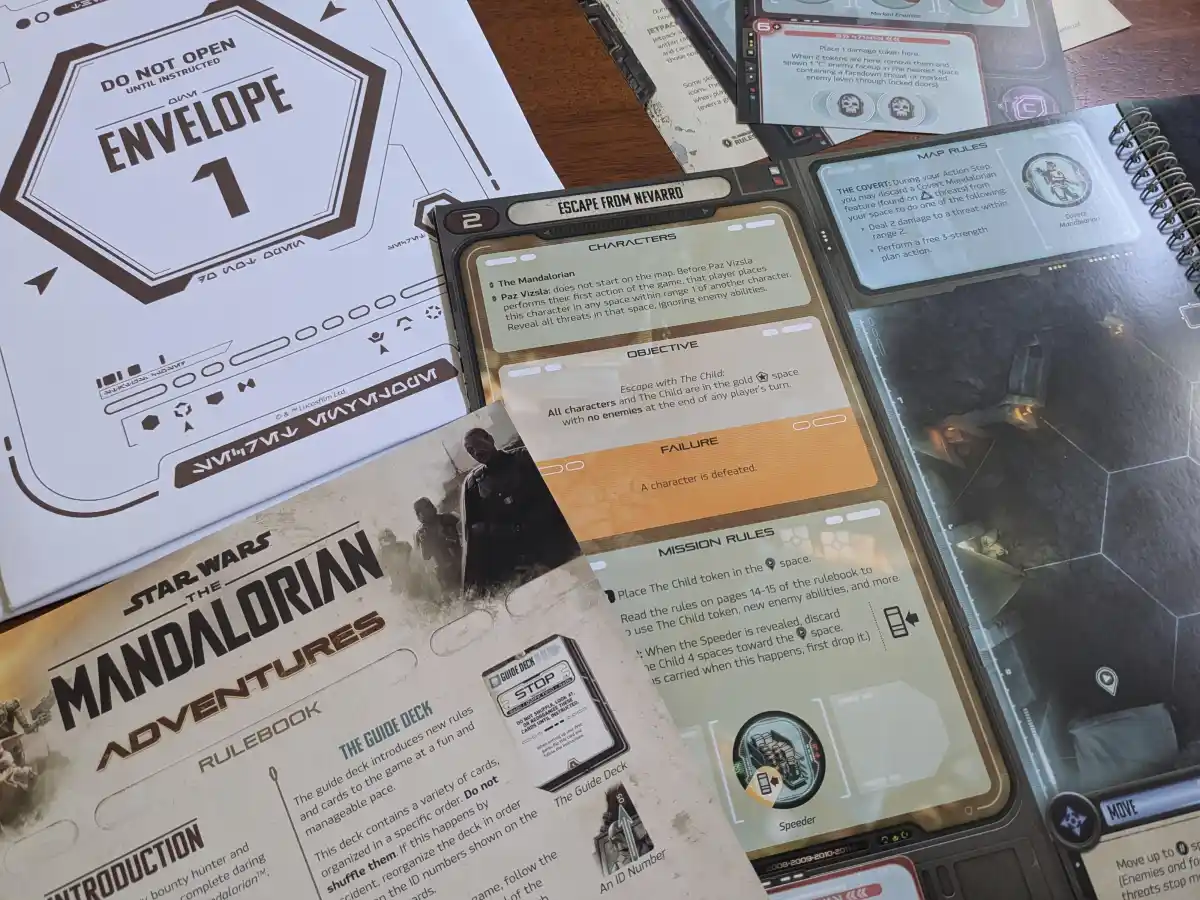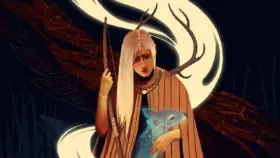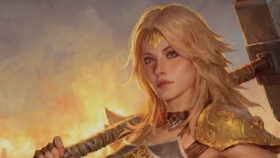Sometimes timing can be a curse. The Mandalorian: Adventures is a one-to-four player cooperative board game based on a beloved space opera property, utilising a spiral-bound book of hex-grid dungeons in conjunction with an unfolding narrative device to grow and deepen the complexity of each of its player characters as its campaign unfolds.
Why yes, it is in fact remarkably similar to the superb Mass Effect: The Board Game – Priority: Hagalaz I reviewed just a couple of weeks ago, and the fact that it’s launching right alongside it and at the same RRP of $95AUD unfortunately makes it really difficult to not directly compare the two.
I’m going to say this now lest what criticism and inevitable comparison follows muddy the interpretation of my feelings: The Mandalorian: Adventures is a good game. It features a host of cleverly executed design ideas and captures the vibe of its source material effectively. I like it a lot. However…
It feels a couple of years late to the party
The Mandalorian: Adventures takes players broadly through season one of The Mandalorian. Just season one, which aired almost five full years ago.
Upon opening the box I was struck by how budget its presentation felt. There’s terrific original artwork featured throughout, but The Mandalorian’s titular Adventures take place in a realm of basic-quality cardboard tokens and cards. In a world where a lot of similarly scoped tabletop games use miniatures at least for their player characters, The Mandalorian: Adventures’ are all 2D cardboard wedged into plastic bases.
Considering how many fantastic Star Wars miniatures are readily available from the likes of Atomic Mass Games and others, making new ones just for this may well have simply been viewed as an unnecessary indulgence. Mass Effect isn’t the only competitor that’s been including them for years, though, and I can’t help but feel that their omission should have warranted the game carrying a slightly lower price tag.

Having watched The Mandalorian through a couple of times now, I jumped straight to the board-book before looking at the rules, curious as to how each of the season’s eight episodes would translate to a game map. Upon doing so I was honestly shocked to see that only four were featured.
The Mandalorian: Adventures designer Corey Konieczka’s tabletop adaptation of Battlestar Galactica’s first season is my favourite board game of all time however, and seeing the inclusion of two envelopes marked ‘DO NOT OPEN UNTIL INSTRUCTED’ comforted me that there’d be a satisfying degree more to it than just what the map book presented. I won’t spoil them, but they underwhelmed.
Okay, but how does it play?
As one would expect from a game that aims to adapt a season of television, The Mandalorian: Adventures campaign book is designed to be played through in sequential order.
I only got to run the campaign solo as my tabletop friends are not Star Wars fans. This doesn’t really change any of the rules, outside of meaning that you always control two characters, even in scenarios where more than that would normally be used.
Gameplay itself is designed around a brilliantly clever system of hero-specific skill card decks. Each skill card features a power number, and many possess unique abilities when played in addition to it. Each player must play two skill cards per turn, dropping them into four slots along the bottom of the map board. These govern movement, combat, hero buffing, and board manipulation respectively.
The higher the number, the more the hero can move. The more powerful they can attack, the more buff cards they can rummage through (and so on and so forth), though no slot is allowed to be played twice by the same player in the same turn.

Slotted cards stay in place after the player’s turn is done, with subsequent players adding their skill cards to the stacks as they perform those same actions. After a player’s two cards are played, consequences occur for each slot with a combined card number value of five, and much more severe consequences occur if the total is six or greater. It’s a system that generates a wonderful tension every turn, as efficiency vs. danger must be weighed.
Win or lose, at the completion of each scenario you refer back to a campaign card deck that’s organised in a specific sequence, and follow its instruction. You typically then add new rules to the game, increasingly complex cards to each hero’s skill deck, and more powerful cards to the enemy deck.
It’s a brilliant system for managing a difficulty curve and also a really clever way of gradually introducing elements from later episodes of the TV season. I absolutely love it.
I wish The Mandalorian: Adventures strived to do more (or at least involve less money)
The Mandalorian: Adventures features exactly the kind of mechanically clever and thematically rich design singing in harmony with one another that fans of Konieczka’s licensed tabletop game works could hope for. It’s just such a shame that its price point holds it back as a value prospect.
Again, it is a little hard for me to fully set it apart from Modiphius’s recent Mass Effect, but even in a vacuum there’s a lot about it that just feels more cheap than you’d hope for a game at its price point.
Those looking for a breezy Star Wars dungeon-delver would do well to pick it up, they should maybe just wait to do so on sale.
Three-and-a-half stars: ★★★½
The Mandalorian: Adventures
Designers: Corey Konieczka with Josh Beppler
Publisher(s): Unexpected Games
GamesHub reviews are scored on a five-point scale. GamesHub has affiliate partnerships. These do not influence editorial content. GamesHub may earn a small percentage of commission for products purchased via affiliate links. GamesHub reviews were previously rated on a five-point scale. As of 29 July 2024, they are rated on a ten-point scale.





